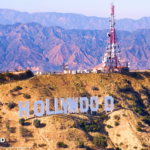he population of Nigeria is 167 million, which is 60 times the population of Mongolia, while the total area of Nigeria equals two thirds of that of Mongolia. Even though Nigeria is different from us in many ways such as population density, access to the ocean, race, ethnicity, religion and history, these two countries are similar in many ways. The clearest similarity is that these countries are both very dependent on their natural resources. Nigeria is ranked 10th largest in the world by its oil reserves and Mongolia is ranked 10th by its coal reserves. Nigeria supplies 10 percent of the U.S. oil imports and Mongolia supplied 40 percent of China’s coal imports last year. Mongolia and Nigeria are both absolutely dependent on international market prices of commodities. Those resources are the main driving force of economy; therefore, they almost solely comprise the exports and make up the most of budgetary revenue.
When international market price of their main raw material goes up, the governments of these two countries expand significantly, number of ministries and employees who work for them increase, government involvement in economy becomes greater and implementations of poorly calculated big projects start. Budgetary expenditure of these countries increases before their budgetary revenue does and, when runs deficit, the balance is taken from making domestic and foreign borrowing. When international market price of the raw materials falls, the government revenue declines, but the government cannot decrease its expenditure. Once the investments that already started are stopped, many people get unemployed and supplier companies go bankrupt. As a result, the economy starts experiencing a crisis. Military leaders of Nigeria have always done coup d’état when there was an economic crisis.
The authorities always benefit from greater government involvement in economy and their non-transparent operations and they start competing with each other to illegally benefit from public property by using their public positions. Corruption becomes so widespread that the society accepts it, does not detest it, but is proud about it and corruption is regarded as an ordinary matter. Nigeria was ranked 143th in the world’s corruption indexes report in 2011 and Mongolia was in the 120thplace, which makes the two countries close neighbors. The significance of comparing these two countries is that the example of Nigeria shows where the improper, bad governance seen in today’s Mongolia could lead us in the future and what we must not do if we do not what is happening there in Mongolia.
Every time a new government is formed in Nigeria as a result of coup d’état, the former authorities and their allies fly away abroad and take everything they acquired illegally with them. Though in Mongolia power is changed by election sometimes with big disputes on voting accounts, we will see what happens in Mongolia with ruling elites that obtained large public assets when they are out of power.
Even though Nigeria is one of the biggest oil producers in the world, they are not interested in producing end products. There are only four oil refining plants in Nigeria and supplying them with oil is not lucrative for companies that import processed products from abroad. The government of Nigeria buys the imported end products from those companies, sells them to people with lower prices and pays the balance to the importing companies with money from public budget afterwards. That is how the government of Nigeria has been “cooperating” with those companies it has connections with for many years.
There has recently been a proposal in Nigeria to remove the biggest nest of corruption and cut USD 8 billion to decrease pressure on public budget by one fourth. However, as petrol price was doubled, people were extremely upset that they started to damage public properties such as cars on street and, now, a riot could break out in Nigeria. A proposal to build an oil refining plant in Mongolia has been discussed for years and, yet, crude oil mined from the east of the country is still being exported to China. We import almost all of our oil and petrol from the Russian Federation and the retail price is regulated by changing the special tax rate. On these days, a few importers that hold a special permission increased their retail price by 17 percent.
It has been a long time since a trend was formed in Mongolia that every producer or retailer increases their prices when petrol price goes up. When the prices increase, people do nothing except getting upset.
The government of Nigeria is so extravagant and lack calculation that half of the public budget spent on many big projects of infrastructure is lost on the way. Then they keep borrowing from abroad and at the end they were not able to pay event the loan interests. Nigeria has gone bankrupt once. Currently, the government of Nigeria is barely paying the interest of its foreign debt, which has already exceeded the loan. The main challenges of today’s government of Nigeria are to decrease poverty and unemployment, improve infrastructure, fight increasing crime and provide people with security. It has become a habit for people in Nigeria to threaten their government to destroy local roads and infrastructure unless the government gives them money or increases salary.
Mongolians must study this story of Nigeria well and try not to repeat their mistakes. First of all, we have to make the governance transparent and accountable so that the authorities report to people and accuracy of the report is audited by specialized body that includes representatives from civil society. Furthermore, we should start doing this action from the public budget and the new law on public budget must be implemented starting from 2012, not next year as the officials agreed.
The time has come for the authorities to stop illegally benefiting from public properties and to hold those responsible for unlawful actions.
May our natural resource be a blessing, not a curse.
Translated by B.AMAR







